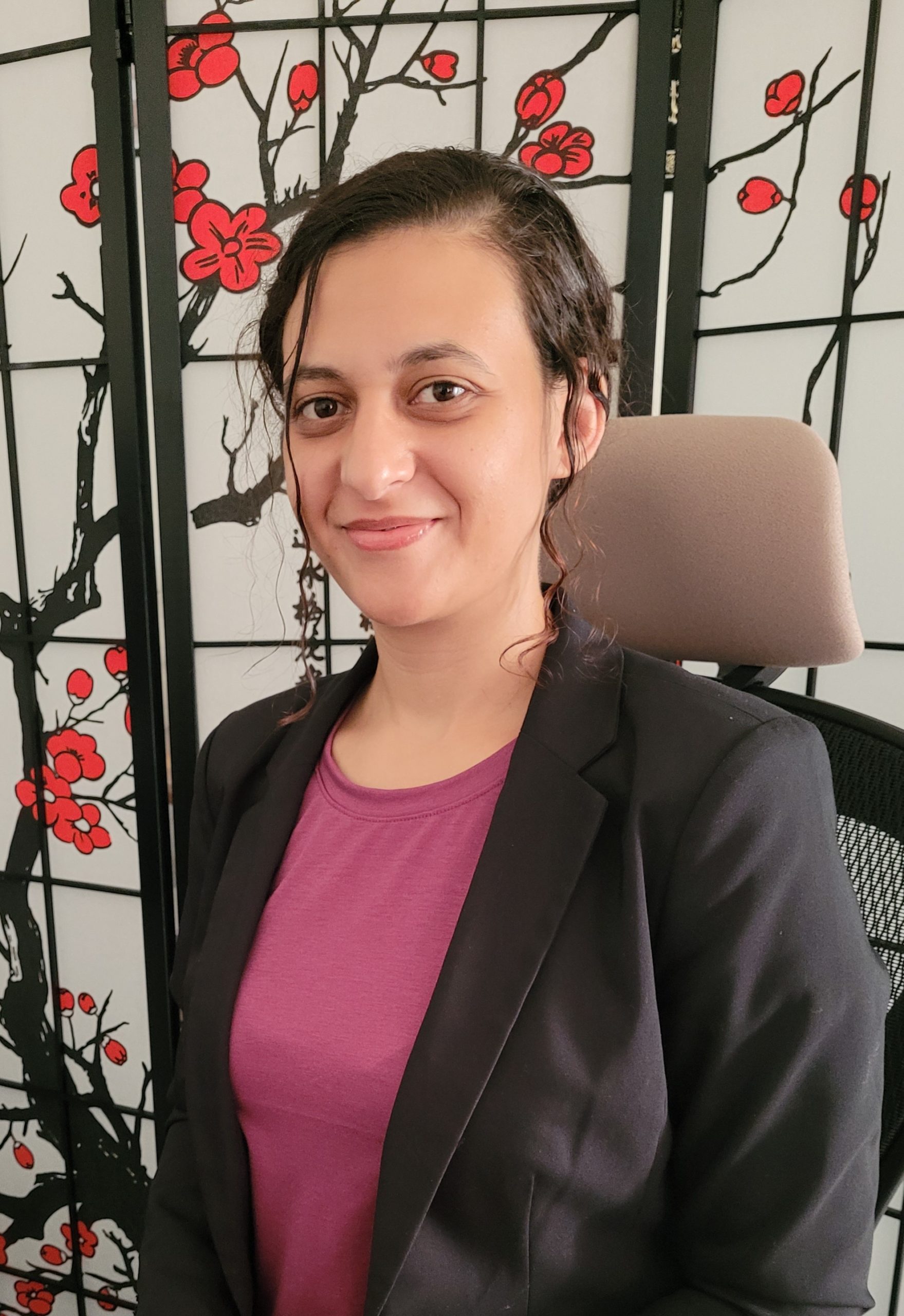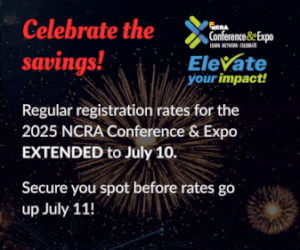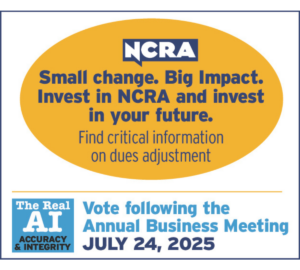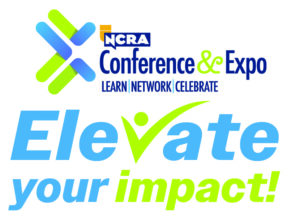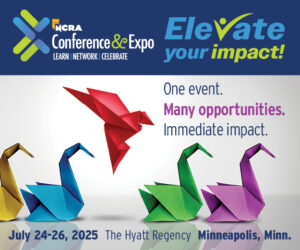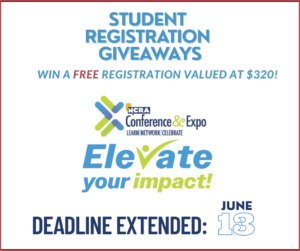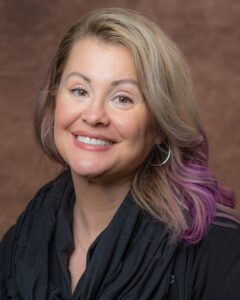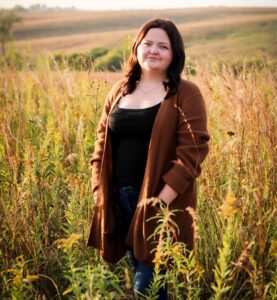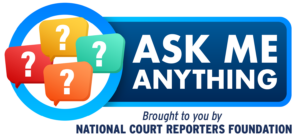Haleema Saleh’s original plan was to become a marriage and family therapist. But after getting married, traveling abroad, and having children, she began to think about other options. A flyer for the NCRA A to Z® Intro to Steno Machine Shorthand program led her to take the course, fall in love with the machine, then enroll in the online court reporting program at Humphreys University in California. This past spring she graduated, earned her Registered Skilled Reporter (RSR) certification, and is now just one leg away from earning her Registered Professional Reporter (RPR) certification.
UTS | Can you talk a little about your background?
HS | I was born and raised in Southern California. My family has since moved to Northern California. It was like a different country at first. I have four kids, which include a set of twins. Starting court reporting school when my twin boys turned two years old was quite an adventure.
UTS | How did you first get the idea of being a court reporter? Did you have another career before you started at Humphreys?
HS | After high school, I got my bachelor’s degree in psychology. The original plan was to go to grad school and become a marriage and family therapist. I got sidetracked with the desire to travel, so my husband and I got certified to teach English as a second language. We spent about two years abroad in Vietnam, China, and Saudi Arabia. After we came back to the U.S., we started having kids. I raised them for a few years wondering what I was going to do. I knew I wanted to get back in the workforce, but I began questioning whether I wanted to continue pursuing my career as a therapist. I started to explore other options.
That is when I found out about court reporting. I saw an advertisement about what a great career it was, how many career options were available, the shortage the field was facing, and admittedly, I also noticed the pretty good salary. Raising four kids, all those things were very important to me. I started to look more into it and decided to take the free NCRA A to Z® Intro to Steno Machine Shorthand program. I fell in love, with the machine and the rest in history.
UTS | What kinds of challenges have you faced during your court reporting program, particularly during COVID-19?
HS | I chose Humphreys specifically because they had a remote online learning program. In that respect, COVID did not really disrupt that part of my journey. It did, however, cause my two school-aged kids to have to learn at home as well. That just added a lot to my workload. It was a bit tricky having to assist them and try to attend my classes and have some sort of quiet time to practice. The quiet time never came, but I was able to juggle my classes and theirs – somehow. Don’t ask how because I have no idea. Having everyone home all the time was probably the most challenging. I kept saying that I will never complain about the drop-off and pick-up at school process again!
I also had a few personal challenges along the way. This process is not easy, and it can take a toll on yourself and your family. Some of those challenges spurred me on and others were harder to get through. But since I was passionate and determined to be a court reporter, I definitely did not let the challenges get in my way.
UTS | You just passed your RSR in May. Tell us about that. Any plans to get your RPR?
HS | Passing the RSR was such a relief. It feels so good to have a certification under your belt. The two and a half years of school and practicing whenever I could felt like it was starting to pay off at that point. I definitely want to get my RPR. I have already started that challenge and have one more leg to pass!
UTS | Have you graduated from school and started working?
HS | Yes. I graduated this past spring. It feels amazing to have that degree. I still attend speedbuilding classes when I can. I want that RPR and California Certified Stenographic Reporter (CSR) credential as soon as possible, so I know I need to keep up my speed.
After passing the RSR, I became certified in Washington state and have started to work as a remote deposition reporter. It feels great to be able to help support my family at this time. That is one thing COVID allowed me to do. With the widespread use of remote depositions now, it is easier to find work.
UTS | What is your dream job?
HS | At the moment I love working in depositions. The freedom it allows is great for my family. However, I have always wanted to work in court. The stability that court gives is very appealing. What I would love the most would be to be able to work overseas somewhere, at least for a little while. I hope one day that opportunity will come my way.
UTS | What is the best advice you’ve been given so far?
HS | Don’t be shy to ask questions. This career is very niche. There are not a whole lot of places to find answers to questions we might have. Getting a mentor through CalDRA (Deposition Reporters Association of California) was the best thing that ever happened to me. There are always different situations we encounter. I still constantly have questions. This field has so many people willing to help and answer your questions, so don’t be shy to ask.
Missed previous issues of Up-to-Speed? Access them here.
